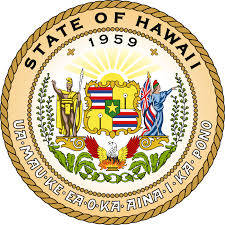The state Legislature will reconvene next week — after more than a month of recess — in order to address the state’s growing budget shortfall.
With tax revenues down thanks to the COVID-19 pandemic, lawmakers will head to the Capitol in Honolulu for at least six days starting Monday to find ways to fill a $1 billion gap in the budget.
House Speaker Scott Saiki and Senate President Ron Kouchi announced Thursday that the reconvened session will only address the budget shortfall.
Although dozens of House and Senate bills were left unfinished during the 2020 legislative session, which went into recess March 17 to mitigate the spread of COVID-19, that business will remain unfinished in order to focus on the budget.
“A few weeks ago, when (Gov. David Ige) announced that he was planning on implementing some drastic budget cuts and furloughs, (Kouchi) and I issued a statement opposing that plan, stating that we wanted to work with the governor to look for other options or alternatives to addressing the state budget shortfall,” Saiki said.
To that end, Saiki said the Legislature’s financial committees will discuss and propose measures to fill the $1 billion gap, which he estimated will take at least until May 18.
Rep. Chris Todd of Hilo, who sits on the House Finance Committee, said there is “every indication” that the shortfall can be addressed without resorting to furloughs.
“It will involve a lot of creative accounting, though,” Todd said. “When you’re trying to find a billion dollars, you’re going to have to get creative.”
The House already passed a supplemental state budget before the recess began, Todd said, so much of the work is already done. However, both chambers will have committee meetings to discuss further measures and policies.
Sen. Lorraine Inouye of Hilo, who sits on the Senate Ways and Means Committee, said the success of next week’s work depends on how much federal coronavirus recovery funds the state will receive. She said lawmakers expect the state will receive $1.8 billion in federal funding, but that sum will also be shared among the counties, so it might not cover the entire shortfall.
Todd said he hopes the Legislature can avoid cutting funding to mental health, social services and homeless outreach programs, or any social welfare programs that, during the current pandemic, are more important than ever.
“We can’t stimulate the economy if we take money away from the people,” Todd said.
However, Inouye said heavy cuts are inevitable.
“Any vacant state positions that haven’t been filled, those are going to be axed,” Inouye said. “We wanted to do things like raise the minimum wage this year, but that’s not going to happen. Anything that would increase the budget is just not going to happen.”
Saiki said the Legislature might reconvene again in June to wrap up some of the unfinished business from earlier this year.
Although the state’s mandatory 14-day quarantine for arriving travelers remains in effect, legislators not on Oahu will be exempt from that rule, Saiki said.
In order to ensure the health and safety of legislators and other state workers, Saiki said the state Capitol will be closed to the public throughout next week, with access to the building limited to only one entrance.
Public testimony and attendance will not be possible, although written testimony will be accepted, and all hearings and floor sessions will be televised and livestreamed at capitol.hawaii.gov.
Email Michael Brestovansky at mbrestovansky@hawaiitribune-herald.com.






